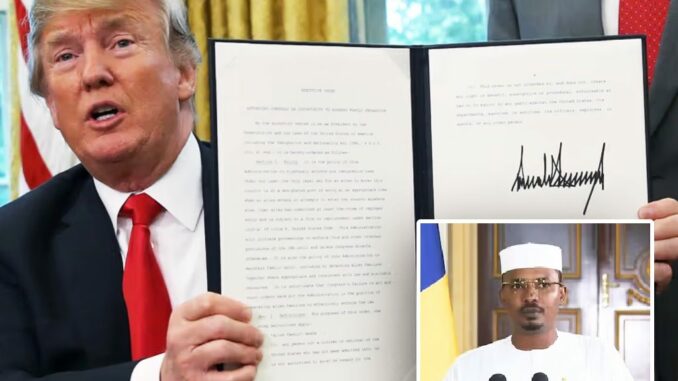
Chad has taken a bold diplomatic stance by suspending the issuance of visas to US nationals, invoking the principle of reciprocity in the face of a new American travel ban targeting a dozen countries, predominantly in Africa.
President Mahamat Idriss Déby Itno announced the measure on social media, asserting that while Chad lacks economic might or aviation clout, it possesses an unshakeable sense of national dignity. The US ban, set to take effect on 9 June, includes Chad among nations such as Libya, Somalia, Sudan, and Eritrea—prompting swift condemnation from Chadian officials, who dismissed the security rationale as both surprising and unfounded, given Chad’s active cooperation in counterterrorism.
The decision, rooted in sovereignty and pride, underscores growing African disillusionment with Washington’s unilateral immigration directives. The African Union echoed these sentiments, warning of the ban’s potentially damaging implications for bilateral relations and calling for a more consultative approach.
Meanwhile, reactions from affected countries have varied. Somalia expressed a willingness to engage the US constructively, while Eritrean citizens, already burdened by decades of domestic repression, voiced anguish over renewed barriers to family reunification and asylum. Affected individuals lamented the emotional toll of being trapped in bureaucratic limbo, with years of legal process and hope now dashed by a sweeping policy shift.
The White House, defending the restrictions as “common-sense measures” to safeguard American borders, cited administrative deficiencies and security concerns in the listed countries—many of which are entangled in internal conflicts or suffer from weak governance. However, critics argue the policy disproportionately targets Muslim-majority and underdeveloped nations, reigniting debates from Trump’s previous term when similar bans sparked legal challenges and global outrage. With exemptions granted only to dual nationals and select athletes ahead of major global sporting events, the move is widely seen as a fulfilment of Trump’s 2024 campaign pledge. Observers anticipate fresh court battles and intensified diplomatic pushback as the policy’s implementation draws near.
